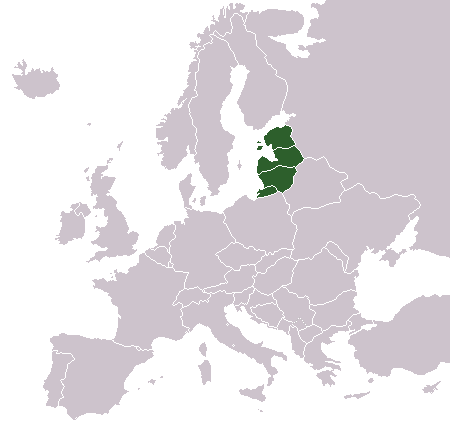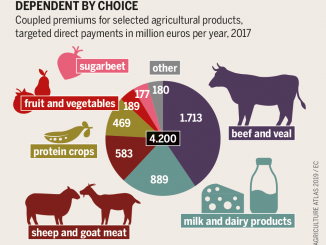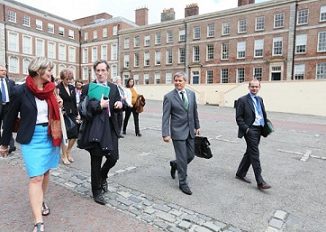Ahead of the European Council meeting on 28th – 29th June, some fifty Estonian, Latvian and Lithuanian farmers vented their frustration with proposed changes to the Common Agricultural Policy (CAP). In a peaceful protest staged on 28 June, in front of the Council’s premises in Brussels, they demanded fairer redistribution of farm subsidies across the EU after the entry into force of the new CAP in 2014.

Earlier in the day, representatives of Baltic farmers met with European Parliament President – Martin Schulz – and gave him a petition demanding greater convergence between Member States’ direct payments. The petition, which was also presented to the European Commission President – José Manuel Barroso – and European Council President – Herman Van Rompuy – was signed by nearly 65,000 people from the three countries.
“We are aware of the current problems in Europe, yet we will insist on our right to receive larger payments. If we are not heard this time, much wider protests will be organised in Riga and Brussels in the Fall,” said Sabine Puke from the Association of Latvian Agricultural Cooperatives.
Under current CAP rules, Latvian, Estonian and Lithuanian farmers receive the lowest level of direct payments in the EU (€97, €117 and €144 per hectare, respectively). Countries at the other end of the scale, such as the Netherlands, Belgium and Italy, however enjoy roughly three times more assistance (€457, €435 and €404 per hectare, respectively). The Commission’s proposed changes would increase the levels of the Baltic States’ direct payments to €144 in Latvia, €157 in Estonia and €174 in Lithuania by 2020. According to the petition however, despite this nominal increase, the direct payments for the Baltic States are still expected to be 35 – 48% lower than the EU average. That is not fair, say Baltic farmers backed by their governments. “We believe that the existing and planned Common Agricultural Policy does not obey the principles of equality and fair competition,” say the farmers. They want the new CAP to introduce a “new calculation method” to determine the amount of direct payments for the Baltic States. This should be based on “actual EU27 average [direct payment] for one hectare post 2013”.
This protest is part of an ongoing clash between two groups of Member States – those that now receive below-average direct payments (Finland, Sweden, Bulgaria, Spain, the UK, Poland, Slovakia, Portugal, Romania, Lithuania, Estonia and Latvia) and those that enjoy higher rates of assistance (e.g. Belgium, France and the Netherlands). The Baltic States, alongside nine other Member States, are advocating the fast rebalancing of payments to close the current gap.
Source: http://www.europolitics.info




